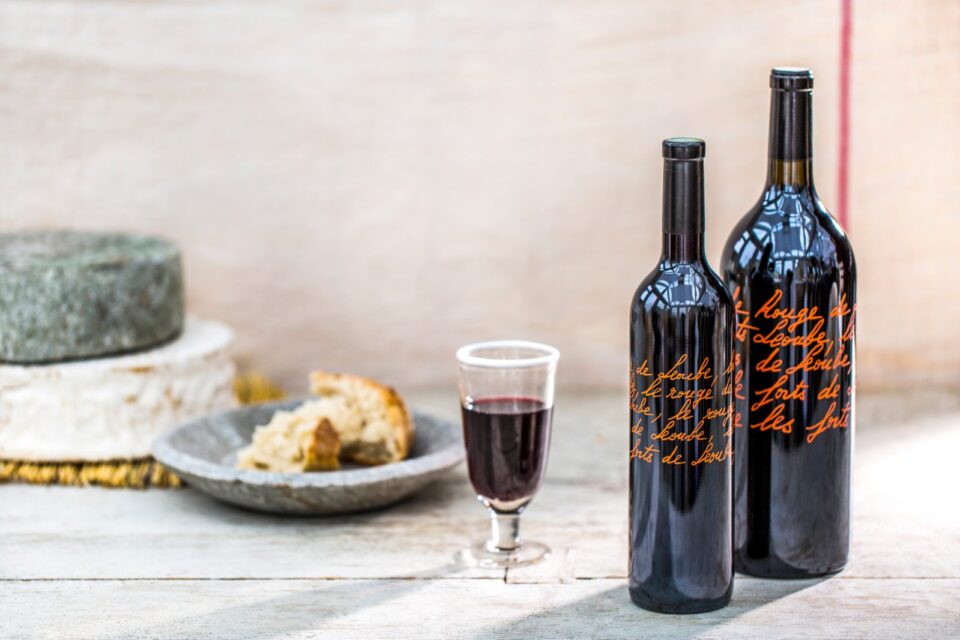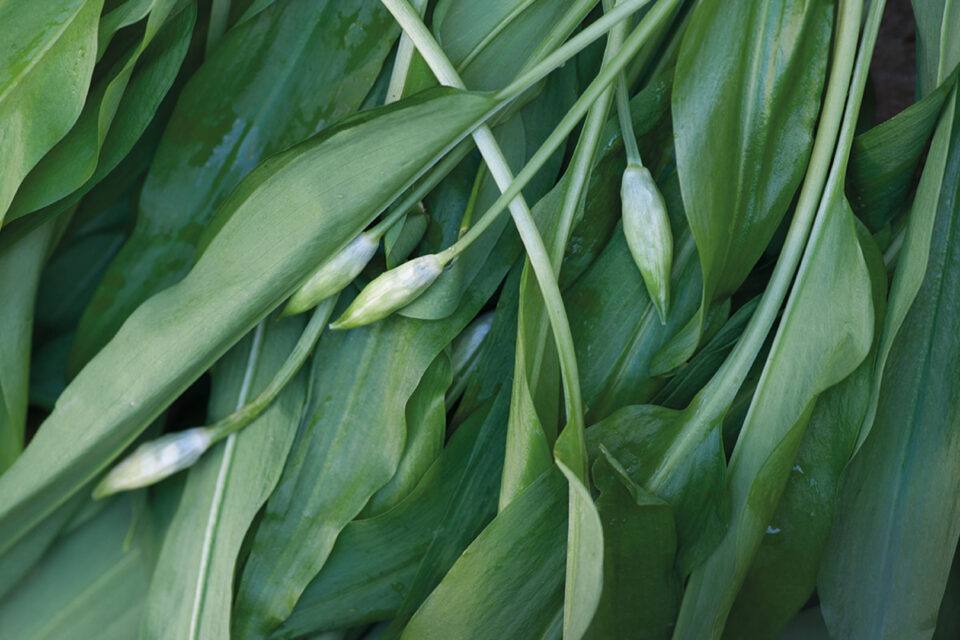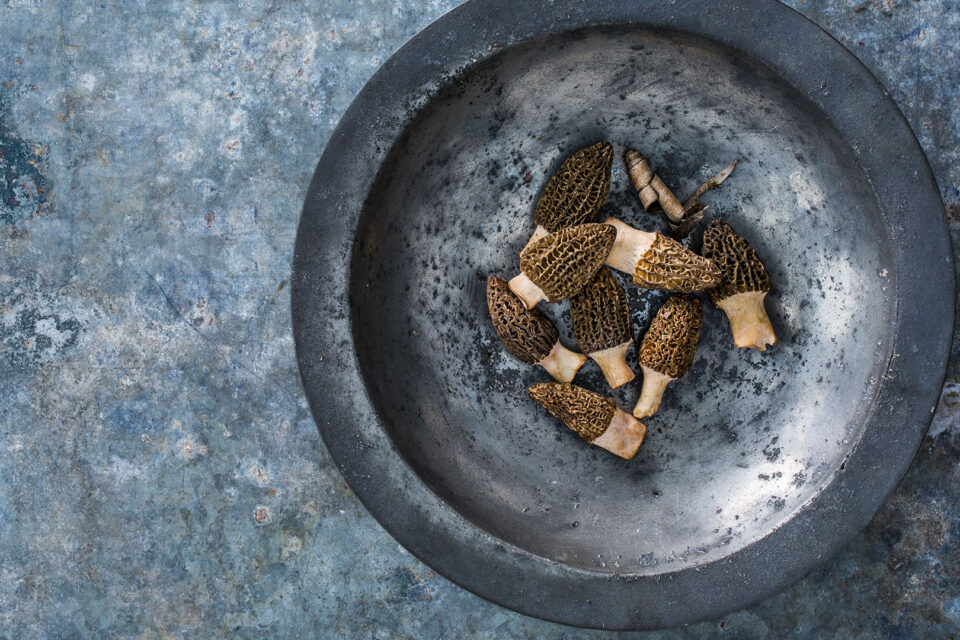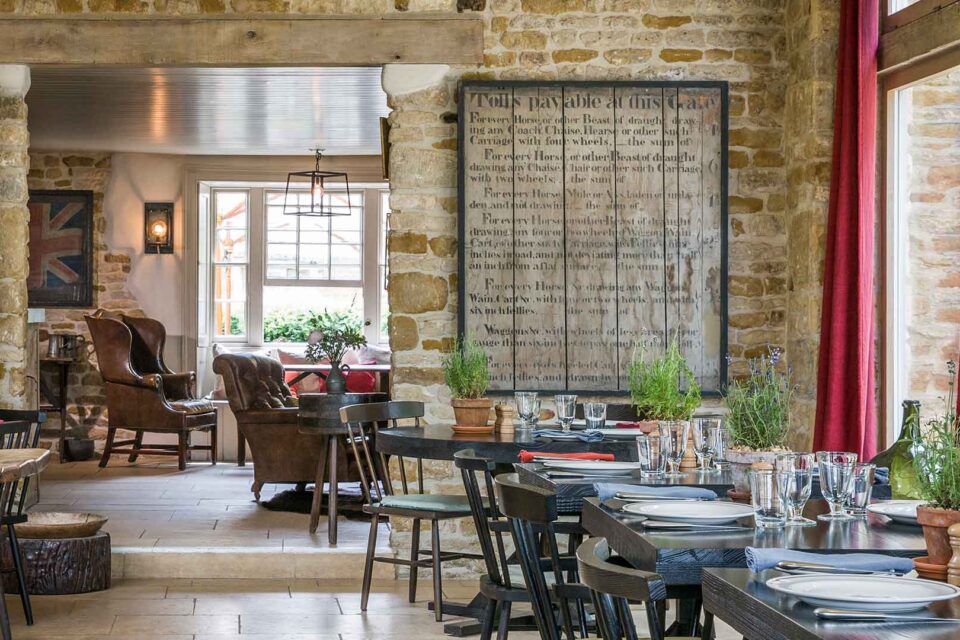Our Head of Sustainability, Will Dennis speaks to The Wild Rabbit’s Restaurant & Bar Manager, Romeo Bisacchi, about producing an award-winning wine list and how it contributes to the pub’s sustainability story.
“You can find good wine anywhere” Romeo tells me. He should know, having toured the world’s vineyards, wine festivals and fine restaurants in search of the best bottles. But there is something special about the collection of over 300 varieties in our Kingham cellar. The secret to the wine list at The Wild Rabbit, he says, is the team’s many years of combined experience in the wine business and their diverse range of tastes. “We wanted to blend together our styles, preferred wines and regions to produce a varied, interesting selection that was also more accessible in price”. The result is a personally curated list that features many of their favourites – Romeo’s own roots are reflected by the presence of several wines from the Piedmont region, close to his hometown of Genoa. Impressively, the list is reviewed every week to ensure that customers are presented with the most up to date offer and this hard work has not gone unnoticed.


Last month The Wild Rabbit received the AA’s Notable Wine Award, a prestigious accolade recognising “an outstanding contribution to promoting wine understanding and appreciation”. One of just 255 businesses in the UK to be granted the award, it is a welcome acknowledgment of the work that has gone into creating such a high-quality wine list. “It recognises that I’m doing my job” laughs Romeo, “but it is a dream to receive an award to recognise a wine list that I have been in charge of”. As well as judging the quality of the wine offer, the AA assesses nominees for their ability to guide and inspire customers in the wines that they select. “The award shows that we love wine, we know what we are selling and will happily guide you through the list to try something different or match your style with grapes that you may not have heard of”. Since the award, the team have noticed a rise in customers exploring the list, which proudly sports the AA award logo and has helped to start a conversation with curious guests. One customer even made the trip to the Cotswolds specially to add a copy of the wine list to his worldwide collection.



I ask Romeo how the list contributes to The Wild Rabbit’s sustainable gastronomy approach, and whether it promotes wines produced to third party certification standards, such as organic or biodynamic. “Most producers over the last 15-20 years have been focusing on sustainable methods, and 95% of our list is from growers with a clear respect for nature” he says. Many of these producers, like our sister winery Léoube, have achieved certification but Romeo is keen to keep logos and symbols off the list. “There are so many different ways to operate a vineyard in harmony with nature”, he says, “I have been to Burgundy, Piedmont, Champagne – all of them have their own opinion about how to grow grapes sustainably”. He explains that there are very few producers who are not embracing some form of regenerative viticulture, understanding that they need to adapt to survive: “Most people agree that we need to go back 100 years, and try to understand how our great-grandparents produced wine without chemicals and artificial fertilisers”.


Like the restaurant’s menu the wine list is seasonal, led by availability as well as customer taste. We are now well into red season, but Romeo tells me that the warmer autumn weather means guests are still in a medium body mood. “But [when it gets colder] in December we’ll go fully Bordeaux, the British way!” he says, explaining that London is the world’s biggest market for Bordeaux wine. Drinking wine in the UK is special, Romeo tells me, because we are not overwhelmed with local production and can enjoy the stories of imported global wines. When I ask if these stories and their availability have changed in response to climate change, he nods: “we are forced to be flexible and anticipate delays or availability issues due to poor harvests or unpredictable weather”.
Before I leave Romeo to his weekly wine review I can’t resist asking for his current favourites in the cellar. He is reluctant to choose but gives me three family-run producers. “Our house champagne – Philipponnat – from a heritage vineyard that is currently celebrating its 500th year of production and still uses horses for ploughing; any of the three whites from Quintodecimo, they produce super clean wines and owner Luigi Moio is one of best oenologists in the world; for red I have to say Roagna, a producer from my home Piedmont region who follow biodynamic practices and have been producing since 1890”.
Romeo is excited to be moving up the road to Daylesford in the new year, where he will be running the wine cellar and hoping to bring some of his favourites to their customers. Our sample wine list can be viewed here.




